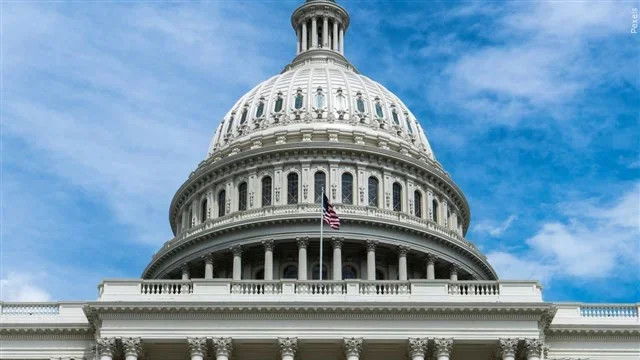Bentz, Chavez-DeRemer explain vote for stopgap funding measure to avert partial government shutdown

WASHINGTON (KTVZ) -- Reps. Cliff Bentz and Lori Chavez-DeRemer, R-Ore., voted for the stopgap funding measure that gained congressional approval on Thursday, averting a partial partial government shutdown, and also issued statements about why they supported it.
Here they are, in full:
Bentz Joins Speaker Johnson in Voting for a Resolution that Keeps the Government Operating
WASHINGTON, D.C. – Yesterday, January 18th, Congressman Cliff Bentz (OR-02) joined Speaker Johnson in voting for a resolution (H.R. 2872) that keeps the government operating until March 1st and March 8th. Without the resolution, the government would have partially shut down on January 20th.
"I am absolutely supportive of securing the Border and reducing spending," said Congressman Bentz. "But shutting down the government will not secure the Border, will not force the Democrats to accept our Republican Secure the Border Act (H.R. 2), and would be fiscally irresponsible. A shutdown would mean many bad things, including the fact that our military would not be paid (for example, significant parts of the Kingsley field mission would be affected), our border patrol would not be paid, munitions would not be manufactured, and the President's and Democrat's power would be dramatically increased, making it extremely difficult for Speaker Johnson to negotiate real Border solutions from a position of strength."
Bentz emphasized that our best chance of actually moving toward a more secure Border is by helping Speaker Johnson use the leverage he has available, not by holding our own military, the border patrol, and our economy hostage, which would be the case if we shut down the government. "Also, we must not initiate a shut down unless we have an agreed upon Republican plan on when and how we Republicans would all vote to reopen the government," said Congressman Bentz. "And I can guarantee you that we are nowhere close to having such an agreement or such a plan."
The resolution (H.R. 2872) keeps the government open until March 1st and March 8th. According to the Republican chairs of the appropriation committees, this is enough time to finalize and pass the remaining appropriation bills, which, if enacted, would moot the need for further funding resolutions.
--
Chavez-DeRemer Votes for Bipartisan Proposal to Prevent Partial Government Shutdown
WASHINGTON, D.C. – Rep. Lori Chavez-DeRemer (OR-05) voted in favor of S. Amdt. to H.R. 2872 to prevent a partial government shutdown. The stopgap measure, which passed on a bipartisan vote of 314-108, already passed the U.S. Senate and now heads to the president’s desk to be signed into law.
“Government shutdowns threaten important services that my constituents rely on, and that’s why I’m doing everything I can to keep the government funded and open. My voting record throughout this process has proven – and will continue to prove – that I won’t hesitate to stand up and do what’s right for Oregon. Congress needs to finish the job and get this government funded for the fiscal year so we can turn to other priorities like addressing the border crisis, improving public safety, reducing homelessness, and expanding access to affordable health and child care,” Chavez-DeRemer said.
This so-called laddered continuing resolution provides extensions for the following bills through March 1, 2024:
- The Agriculture, Rural Development, Food and Drug Administration, and Related Agencies Appropriations Act;
- The Energy and Water Development and Related Agencies Appropriations Act;
- The Military Construction, Veterans Affairs, and Related Agencies Appropriations Act; and
- The Transportation, Housing and Urban Development, and Related Agencies Appropriations Act.
Separately, it provides extensions for the following bills through March 8, 2024:
- The Commerce, Justice, Science, and Related Agencies Appropriations Act;
- The Department of Defense Appropriations Act;
- The Financial Services and General Government Appropriations Act;
- The Department of Homeland Security Appropriations Act;
- The Department of the Interior, Environment, and Related Agencies Appropriations Act;
- The Departments of Labor, Health and Human Services, and Education, and Related Agencies Appropriations Act;
- The Legislative Branch Appropriations Act; and
- The Department of State, Foreign Operations, and Related Programs Appropriations Act.